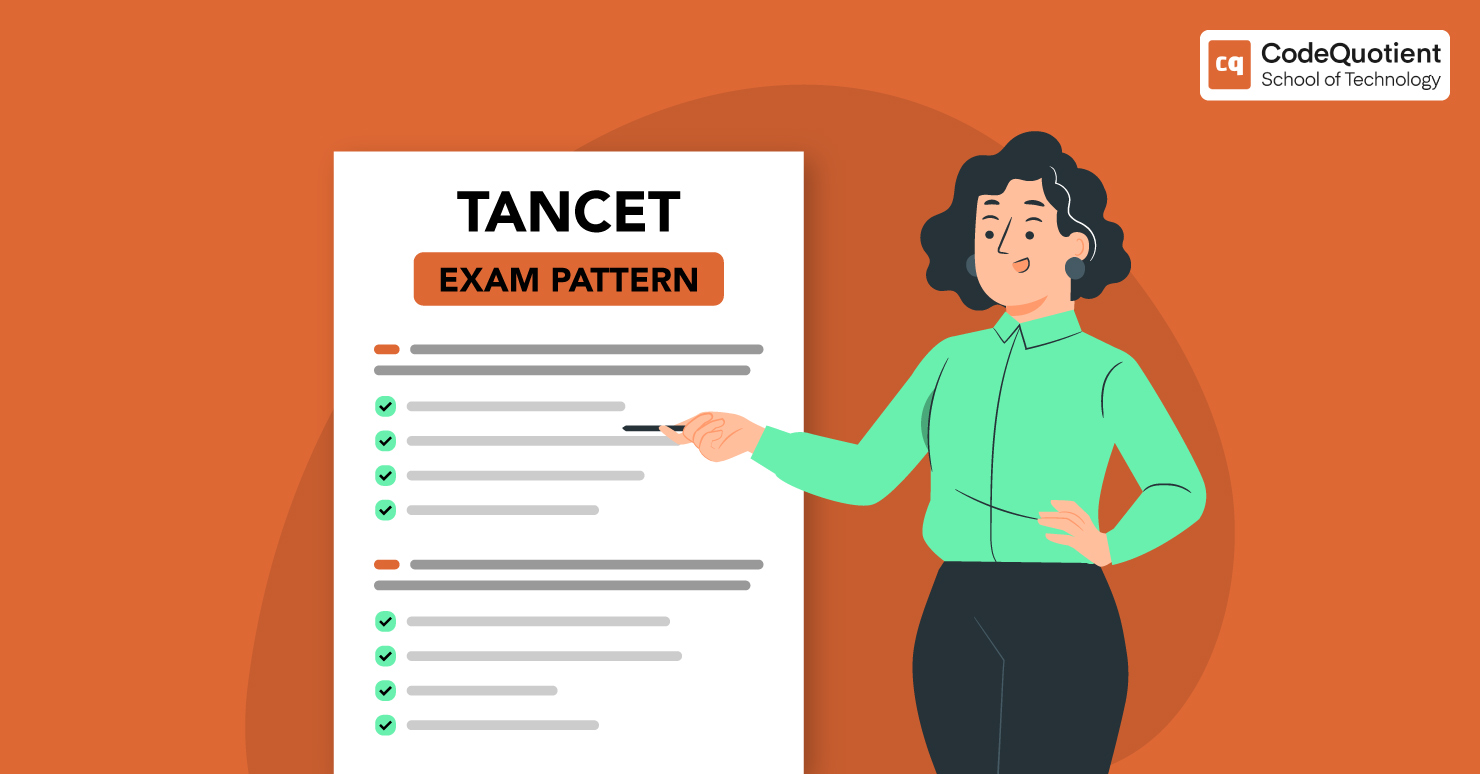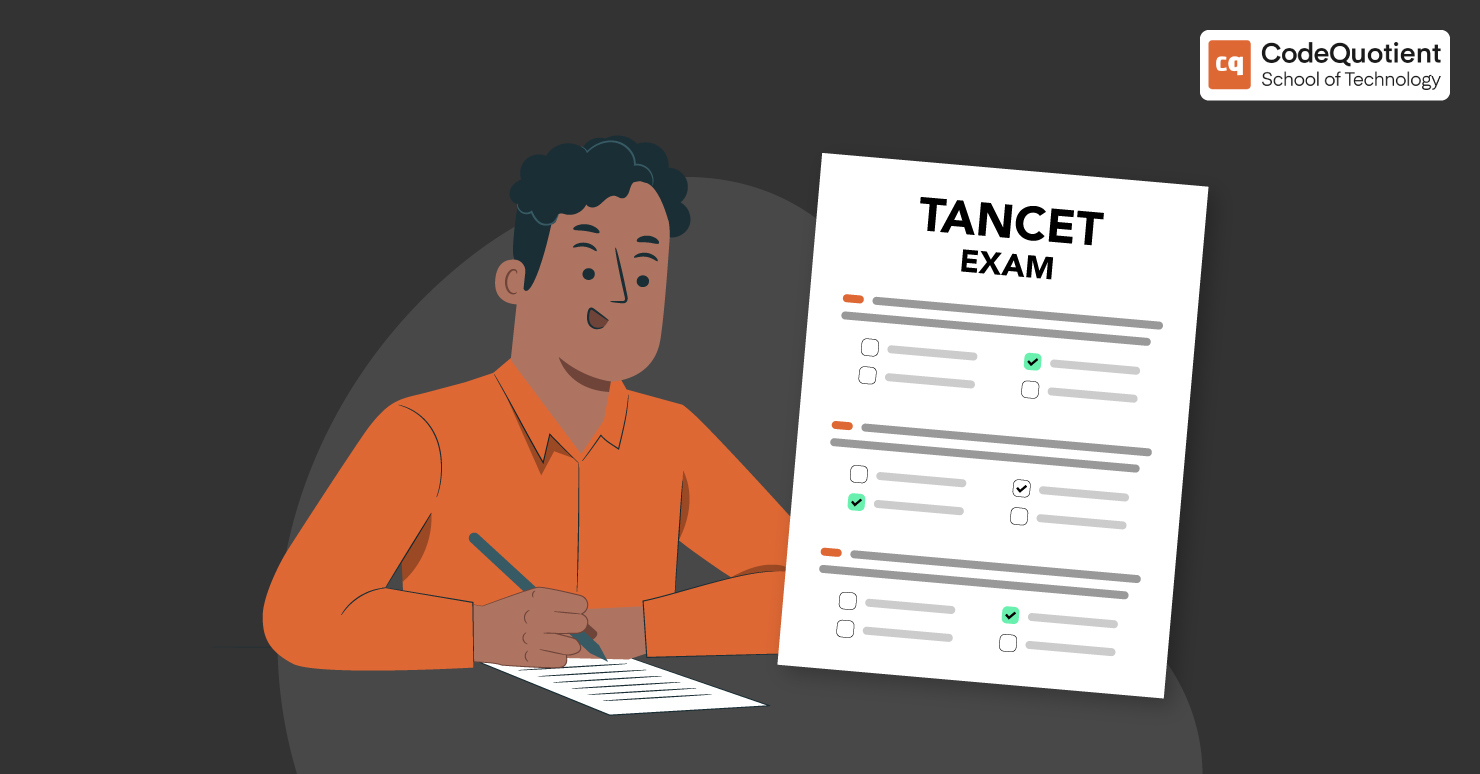The Tamil Nadu Common Entrance Test (TANCET) is an important exam for students who want to pursue postgraduate courses such as MBA, MCA, M.E., M.Tech., M.Arch., and M.Plan. in colleges throughout Tamil Nadu.
Nearly 35,000 individuals compete for the 15,000+ MBA seats granted by TANCET participating universities. Given the intense competition, candidates vying for admission through the TANCET exam must devise a formidable preparation strategy.
Candidates should start preparing four to five months in advance to improve their chances of passing the exam. Aspirants must also have an adequate exam preparation strategy to score well in the exam.
In this article, we’ll delve into effective strategies tailored for TANCET exam preparation.
Understanding the TANCET Exam

Before going into study tactics, it’s critical to understand the TANCET exam’s format and structure:
- The exam will be conducted offline.
- The exam will last two hours.
- There will be 100 questions on the MBA and MCA paper.
- The M.E. / M.Tech. / M.Arch / M.Plan exam will consist of 115 questions.
- Every right response will be worth one mark.
- Each wrong answer will result in a 1/3 negative marking.
Exam Pattern
We have provided the exam pattern for all courses for which TANCET is held. The space below illustrates the course-wise sectional distribution of the TANCET exam.
- The TANCET MCA test consists of four sections, each with 25 questions. Each section has 25 marks. The TANCET MCA exam includes the sections listed below:
- Computer Awareness
- Quantitative Ability
- Logical Reasoning
- Analytical Ability
- The TANCET exam for MBA admission includes questions from five categories, each with 20 questions. Each section has 20 marks.
- The TANCET MBA sections are as follows:
- Reading Comprehension
- Data Sufficiency
- Quantitative Ability
- Business Situations
- English Usage
- The TANCET test for all other courses is divided into three stages, each with its own weightage. The TANCET test sections for ME/M.Tech/M.Arch/M. Plans are listed below:
- Engineering Math for 25 marks
- Basic Engineering and Science Sections for 30 marks
- Discipline-specific section for 60 marks
7 Effective TANCET Exam Preparation Strategies
Here are some strategies to help you prepare for the TANCET exam:
1. Create a Study Schedule
One of the first steps in preparing for any competitive exam is to devise a disciplined study schedule:
- Create a daily agenda that strikes a balance between study and recreation.
- Develop an organised study plan that gives adequate time to each part based on your skills and weaknesses.
- Maintain a steady study schedule and avoid procrastinating.
- Break the material down into digestible bits and create achievable daily or weekly goals.
Remember, regular breaks throughout study sessions are vital for avoiding burnout. A well-planned schedule aids in systematic preparation and assures thorough coverage of the subject.
2. Master the Basics
TANCET exam questions frequently cover essential ideas. As a result, it is critical to have a solid foundation in arithmetic, algebra, geometry, logical thinking, fluency in English, grammar, vocabulary, and general knowledge.
Candidates must comprehend the fundamental concepts, formulas, and quick methods used to solve/answer typical questions on the question paper. To fully understand the essential ideas, always consult common textbooks and study materials.
3. Practise Mock Tests and Sample Papers
To imitate the actual exam setting, practise mock examinations and sample papers on a regular basis. They provide insight into the exam pattern and identify areas for improvement.
They also allow students to analyse their preparation level while also providing a practice run to experience the same level of pressure and confidence.
Analyse your performance after each simulated test to uncover areas for improvement and modify your study strategy accordingly.
4. Work on Improving Speed and Accuracy
Speed and accuracy are the two most critical aspects of passing the TANCET exam. Keep track of your pace while solving the previous year’s exam papers or attempting simulated tests. Also, make sure you’ve answered the questions correctly.
Of course, the key to precision is consistent practice. Students should try focusing on weaker sections and practising different questions until they can answer questions with greater agility.
5. Develop Time Management Skills
Candidates must have a proper time management strategy in place before attempting each section of the paper.
Try to finish the paper on time and work on your timing with each attempt. Practice timed mock tests to understand how to distribute time effectively across different areas.
Note how much time you spent on each question. Prioritise answering questions you are comfortable with before moving on to more difficult ones.
6. Revision is Key
As the exam date approaches, allow enough time for revision. Revision helps to boost confidence and lessen nervousness. You must practise answering questions in the allotted time so that on the big day, you don’t spend too much time on one single topic.
Concentrate on improving your weaker areas while keeping your accuracy in topics where you already excel.
7. Utilise Online Resources
There are numerous resources available online for TANCET preparation. Use trusted websites, mobile apps, and online courses to get study materials, practice tests, and interactive quizzes.
Engaging with instructional materials, such as expert-led webinars, is invaluable. These webinars are frequently offered for free on platforms such as YouTube. These materials not only help you prepare, but they also provide useful insights and recommendations from experts.
Conquering the TANCET Exam
Preparing for the TANCET exam requires commitment, perseverance, and a smart strategy. Aspirants who follow these tactics can improve their preparation and increase their chances of success.
Remember, consistency and hard work are essential, so stay focused, practice, and believe in yourself.
Go Beyond a Traditional BCA: Become a Job-Ready Software Engineer
Alternatively, you can also enrol in the Bachelor of Computer Applications (BCA) + UG Program in Software Engineering. This unique 3-year program from CodeQuotient School of Technology combines a BCA degree with specialised software engineering training. You’ll learn in-demand skills used by top companies, work on real-world projects, and gain paid internship experience.
- Earn Two Valuable Credentials: Graduate with a UGC-recognised BCA degree and CodeQuotient’s UG Program in Software Engineering certification.
- Hands-on Learning: Develop software, contribute to live projects, and explore the open-source community.
- Paid Internship: Gain up to 1.5 years of valuable work experience with a partner company while earning a stipend.
- Potential Tuition Sponsorship: Students who excel may have their tuition fees sponsored by hiring companies.
Contact us to start your journey today!




